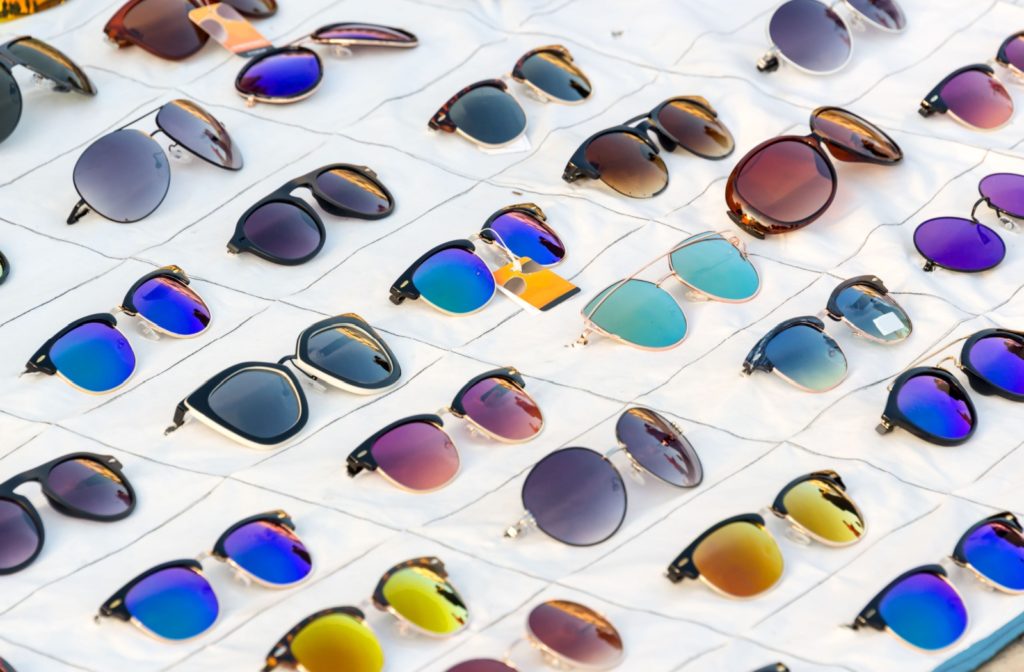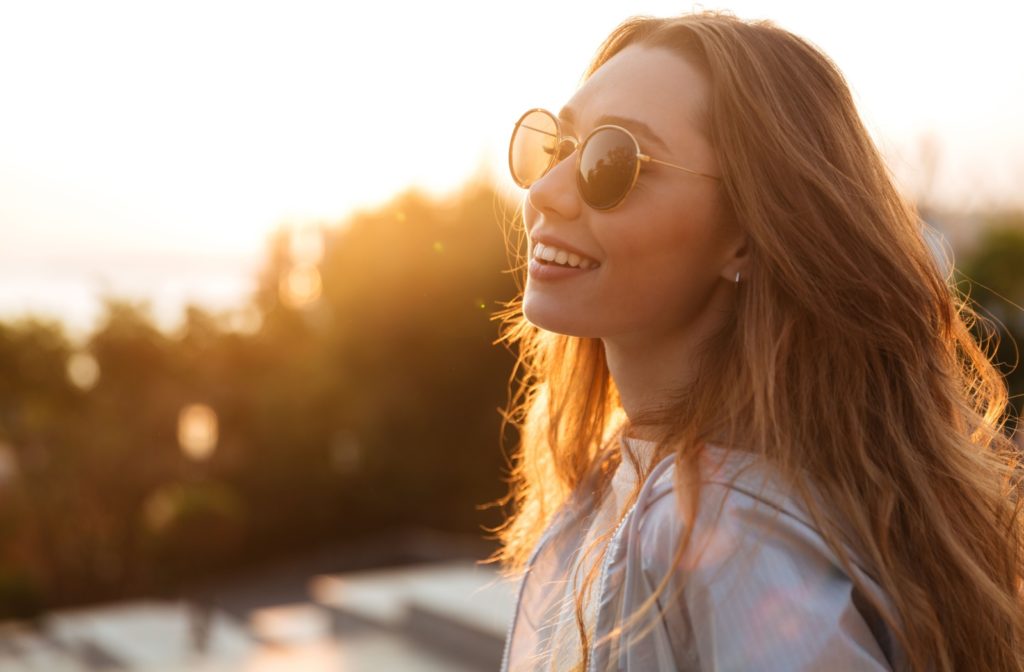When it comes to choosing the right pair of sunglasses, it’s about more than just style—though that can play an important part too! It’s about making an informed decision for your eye health with a pair of sunglasses that actually protect you. Proper UV-protective sunglasses can help reduce the risk of certain eye conditions—but do all sunglasses have UV protection?
Sunglasses come in all kinds of effectiveness, and they aren’t all created equal. It’s crucial to choose a pair that’s labeled as blocking “100% of UV rays” or “UV400 protective.” This means that they actually prevent the harmful radiation from reaching your eye, helping keep your eyes and vision safe from the sun.
What Are UV Rays?
The sun, the center of our universe, is responsible for life itself on our planet. The sunlight it emits is responsible for our lush green landscapes and vibrant ecosystems. However, too much sun exposure can be a problem for all kinds of living things, humans included.
The sun emits invisible ultraviolet (UV) rays of radiation. There are three types of rays it emits: UVA, UVB, and UVC. While the latter are blocked and absorbed by the atmosphere, the first two are a little more problematic; they penetrate deeper through the atmosphere to reach the earth’s surface.
How UV Rays Affect the Eyes
These rays can have unwanted side effects throughout the human body. The eyes are particularly vulnerable to these rays; in fact, extended exposure to these rays increases the risk of developing:
- Cataracts, a clouding of the eye’s lens which can lead to decreased vision
- Age-related macular degeneration, the leading cause of vision loss in individuals aged 50 and older
- Pterygium, a growth of tissue on the white of the eye that can extend to the cornea and affect vision
- Photokeratitis, essentially a sunburn of the eye’s surface, which is painful and can temporarily impair vision
- Cancer, due to how UV rays affect the cells in your body long term
This is why it’s so essential to wear sunglasses, even if the sun isn’t shining directly. You’re still being exposed to harmful UV rays, and protecting your eyes is essential—it’s a big step toward safeguarding your vision.
What Are UV-Protective Sunglasses?
UV-protective sunglasses are exactly what they sound like; they’re designed to block harmful UV rays from reaching your eyes. They do this through special tints, coatings, and filters built into the lens. However, there’s a bit of a problem; this level of UV protection can vary wildly between pairs of sunglasses.
While some sunglasses offer extremely comprehensive protection, others could just be tinted plastic. While a little bit of something is technically better than nothing, a cheap pair of sunglasses may not actually be protecting your eyes. Some sunglasses don’t offer any UV protection whatsoever, while others may state that they block “some” UV light.
For example, darker lenses don’t necessarily mean better UV protection; in fact, some clear lenses can offer just as much UV protection as dark lenses. This is why it’s so important to choose a pair of sunglasses that has a label claiming “100% UV Protection” or “UV400 protection.” These labels indicate that the sunglasses have been proven to block 100% of UVA and UVB rays, which is what you want for maximum eye protection.

Protecting Your Eyes from UV Rays
UV-protective sunglasses are a crucial tool for safeguarding your eyes and vision. However, they aren’t the only piece of the puzzle; protecting your eyes from the sun requires a multi-pronged approach.
When you’re outside—especially on bright, sunny days—try to follow these strategies:
- Wear a hat, preferably one with a wide brim. This helps add an extra layer of defense and protects your eyes, face, and neck from the sun.
- Stay in the shade wherever possible, especially during the hottest, brightest parts of the day.
- Use sunscreen on your face, especially around the eyes. This helps protect the sensitive skin from UV penetration.
- Stay hydrated, as this helps keep your eyes healthy and functioning.
- Take regular breaks from activities that involve exposure to UV rays, such as swimming or hiking.
By combining these strategies together, you can take active steps toward protecting your vision and health in the long term. Your eyes will thank you!
Protecting Your Eyes & Vision
Protecting your eyes should always be a priority; it’s a key piece of preserving your vision and health. So come talk to our team at Total Vision Ladera Ranch! We can discuss strategies for protecting your eyes and help you find the right pair of 100% UV-protective sunglasses.
Book an appointment with us today, or take a look at our online sunglasses selection, and let’s work together to help keep your eyes and vision safe.



